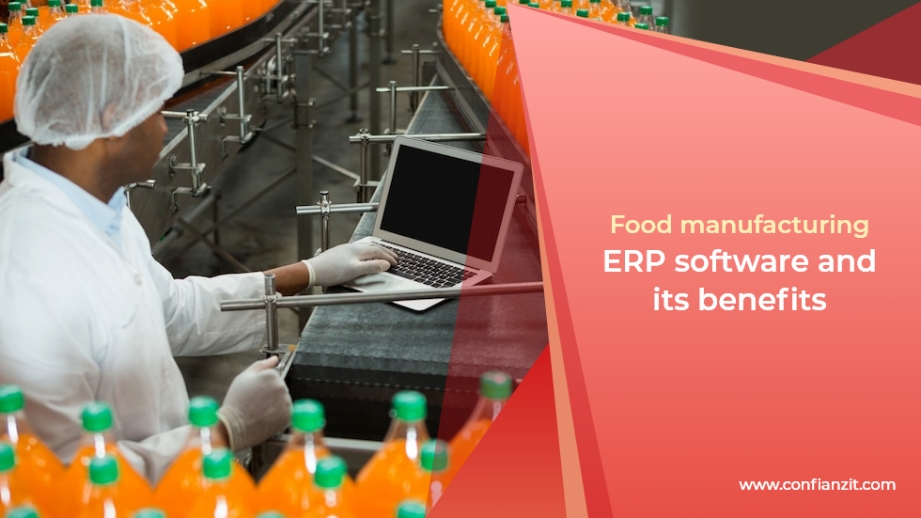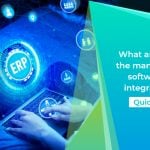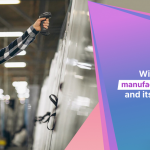ERP (enterprise resource planning) systems are software systems that integrate all aspects of a company’s operations and provide information to management in an easy-to-use format. They are helpful for all industries but especially manufacturing. And even more particularly for food manufacturing.
Food manufacturing is one of the most demanding industries when it comes to managing inventory, production, distribution, sales, and more. An ERP system can be a powerful tool for any company manufacturing food and beverages.
This article will go over both the general and the particular benefits that ERPs have to offer the food and beverage industry.
General Benefits of an ERP System for Manufacturing
ERPs allow companies to manage their inventory, production, sales, customer service, and other functions from one central location. In addition, ERPs automate business processes and consolidate information across internal departments. This helps streamline businesses and aids decision-making by providing real-time data on various aspects of the business. They also provide reports that show the company’s financial status and profitability.
ERPs provide:
- increased efficiency
- improved customer service
- more accurate data
- better productivity
- fewer errors
They also improve efficiency and save time by automating many of the manual tasks that are typically associated with manufacturing.
ERPs keep track of inventory, orders, and production at all times. Managing supply chains—especially global ones—without real-time information leads to increased waste and inefficiency. An ERP can even predict when you will need to order more raw materials based on customer demand.
Inventory modules help manufacturers manage workflow and adopt a lean manufacturing process. With real-time updates, your customers will always be up to date with your stock, which means fewer unfulfilled orders and more sales.
Cost software helps manufacturers manage their operations better by helping determine potential profit margins for new products and accurately assess existing ones.
In terms of hardware, an ERP system is usually cloud-based on-premise. Cloud-based systems are more flexible and allow employees to stay updated no matter where they are.
The benefits of an ERP for manufacturing are clear: increased productivity, reduced operating costs, and improved customer satisfaction.
What are the Benefits of a Food Manufacturing ERP?
Food manufacturing is an industry that has a lot of moving parts, and it is challenging to manage them all. It gets even more complicated when you have to do it all manually. That is why the food manufacturing ERP software was created.
While all the general benefits of ERPs apply to food manufacturing, there are more specific use cases where it can be a critical leg-up.
Food safety protocols
Food safety is a primary concern for food manufacturers, which is why they need an ERP to help keep track of food safety protocols. These protocols are essential to a safe and reliable supply chain.
Looking beyond common sense food safety compliance, if your company ships anywhere that isn’t local, you will need to follow various food and safety regulations.
An ERP will enable you to monitor food safety standards and verify compliance with however many rule sets you need to follow. In addition, an ERP provides an easy way for companies to track what they need to report and when, ensuring that the company complies with regulations.
Quality assurance
Peace of mind is critical both for you and your consumers. Any contamination can spell disaster for food brands, hurting your company’s reputation and your customer’s loyalty.
An ERP can help identify any potential risks that may be present in your operations. This can help you avoid any possible recalls or lawsuits due to faulty products.
Having more regulations and automation in place also improves your products’ consistency. Your customers will be able to know what kind of product they’re guaranteed to get when they see your brand’s name.
Fewer avoidable mistakes
Employees are human, and that means they’re going to sometimes make careless mistakes. However, when it comes to food manufacturing, mistakes, even small ones, can be deadly.
That’s why automation and oversight can take pressure off you and your employees and ensure a safer, more quality product for your customers.
The other element is having a centralized system that your employees can access at all times will keep them more in the loop and up to date on any changes. It will also make onboarding new employees faster since they can access data and systems and make them less reliant on word of mouth.
How to Select the Right Food Manufacturing ERP Software for Your Business
The food manufacturing industry is highly competitive. This makes it difficult for manufacturers to maintain their competitive edge in the market. Therefore, you need to invest in reliable ERP software to stay organized and one step ahead of the competition.
But remember that there are many different types of ERP software out there, but only some of them will be a good fit for your business.
Some ERPs have industry-specific solutions, so start by looking at those options. But also remember that some ERPs, such as Acumatica, are more flexible than others and will allow you to make modifications to suit your needs.
You need to decide which processes in your company are most time-consuming and which ones you want to automate. It’s essential to consider the size of your company, what types of products you manufacture, and your budget before making a decision.
Conclusion
ERP software is essential for businesses that want to grow and stay profitable, especially those in food manufacturing. A sound ERP system will provide you with a complete set of tools to help you manage all aspects of your business efficiently and effectively. As a result, not only will your bottom line thank you, but also your customers when they get to enjoy consistently safe and quality food.
Acumatica is an ERP software that offers robust accounting features alongside its other modules. In addition, it is a true cloud option, meaning it was built for the cloud and requires no software to run. Acumatica was founded in 2008 when the founders saw the need for a flexible, cloud-based ERP solution for small and mid-sized businesses.
Acumatica’s manufacturing cloud ERP software integrates with customer management, sales, inventory, and financials, providing real-time coordination of activities. Acumatica Manufacturing Edition helps manufacturers manage resources, reduce costs, and improve profitability. Acumatica pricing is based on the features and resources that you choose to utilize, not on the number of users who access the system. Still wondering how much does acumatica cost? In the event you attempt to know acumatica pricing model, contact Confianz Global Inc.
Also get an Acumatica demo from us, an Acumatica partner!
Choosing the right ERP for your needs can take time and effort. That’s why Confianz is here to help you pick a system that fills your needs and can deliver everything it promises. So call us today to get started!







